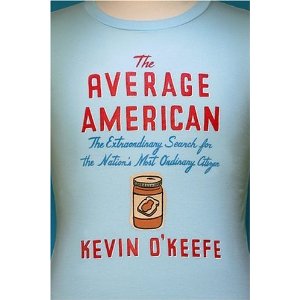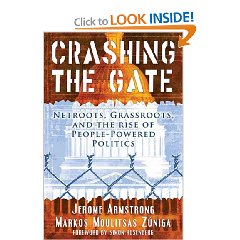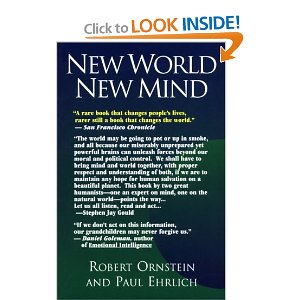This is an absolutely superb book, one of the finest reviews, in a readable form, of all that ails this Nation. The authors are like fighter pilots, performing incredible feats of daring-do, right up to the point where they crash and burn by suggesting that the Democratic Party can win anything at all.
I read a lot–almost exclusively non-fiction about information, intelligence, emerging threats, anti-Americanism, the lack of strategic culture, white collar crime, and the negative impact of US domestic political machinations on our national security and prosperity. This book is one of the single most extraordinary overviews I have ever seen, and if you buy and read only one book this year, this is the book.
I bought the book on faith, but for those who wish that the publisher had done a proper job of posting the table of contents, let me just post that information.
American Reality covers corporate cons, theocons, neocons, and other losers
This Ain't No Party starts with Divided We Fail and then discusses how each of the major movements (labor, environment, women) failed.
The Gravy Train is about white-collar crime–the beltway mafia, the commission mafia, the media, propaganda against our own.
Laying the Groundwork is best summed up by the quote from Mahatma Gandhi on the first flyleaf: “First they ignore you, then they laugh at you, then they fight you, then you win.” We WILL win–there are not enough guns on the planet, or enough places for white collar crooks and crooked politicians to hide, to keep us down or avoid our justice.
Civil War discusses the Dean machine and the path to “Netroots.”
The book concludes with Inside the Gate, which I have mixed feelings about–the authors have some thoughtful ideas on challenging every Republican, but they miss the boat completely in failing to understand that the Democratic political leadership is just as corrupt, slightly more stupid, and much less ruthless and effective.
That leads to my two critiques that take away one star, but I certainly do consider this book a must read and the authors to be geniuses and thought leaders:
1) Peter Peterson, in Running on Empty: How the Democratic and Republican Parties Are Bankrupting Our Future and What Americans Can Do About It does a much better job of laying out the prevailing mood across America, which is essentially, “a pox on both parties.” They have both main-lined bribery, they both lack ethics, vision, strategy, and a commitment to the public interest, and neither party is suited for managing America. What the authors forget, perhaps because of their focus on the Dean revolution (which failed–as did the more electable Edwards). John Kerry was the epitaph of the Democratic Party, and Hillary Clinton will be its gravestone.
2) The authors make the mistake, from the above starting point, of thinking this is about mobilizing a bigger Democratic base against the Republicans. That will not work. Base on base, the Republicans will win every time in this era; in part because the Democrats have given up faith (see my review of the utterly brilliant The Left Hand of God: Taking Back Our Country from the Religious Right by Rabbi Michael Lerner). As I tried to tell Dean and then Edwards and then Kerry, you do not beat a bigger dog with another dog, you beat them with a dog-catcher. There is only ONE dog-catcher issue in this country, and it is this: does EVERYONE's vote count? The answer is no. Hence, I see the author's well-intentioned guidance going down the drain UNLESS they write a second book, which I eagerly encourage, that does two things this book does not do:
a) Show how an American Independence Party, to be launched on the 4th of July, can have a federalist organization that includes conservative Democrats, moderate Republicans, Greens, Libertarians, Independents, and Couch Potatoes all as self-organized units that come together with one goal, and one goal only: crushing the extremist religious-corporate right, and restoring the concept of moral representative democracy to America. Any Congressman who fails to leave either the Republican or Democratic Party, who fails to join the new party, should be defeated in 2008.
b) The authors could write a handbook for organizing the people through a national budget simulation that brings out the issues and demonstrates what Paul Ray has known all along (see my review of “Cultural Creatives” and Google for “New Political Compass”): every issue can attract a mix of ideological views where consensus can be achieved. The problem with our two main parties today is that their corruption eliminates honest representations (see my review of “Breach of Trust” in which the author discusses how forcing Members to vote on the “party line” dishonors their obligation to represent their District). I am prepared to contribute financially if these two authors will establish a web site where we can create a virtual coalition government, with all “wings” of the American Independence Party represented, and where we can use a national budget simulation (it's not policy until its in the budget”) to sort out our spending priorities inclusive of elimination of the double-deficit and a shift of $100B a year toward waging peace. Ralph Nader's book “Crashing the Party” has some good ideas-why can't we do this under the author's guidance, and also pick a coalition cabinet that challenges both Republican and Democratic candidates to do the same and participate in cabinet-level debates under the League of Women Voters?
This is a super book, but the authors repeat the mistake Joe Trippi made early on (see my review of The Revolution Will Not Be Televised: Democracy, the Internet, and the Overthrow of Everything: the Internet will not save the Democratic Party. Using the Internet to create a new umbrella party will, however, save democracy. The two should not be confused. The Democratic Party today is Republican Lite, and not worth saving. Bring on book two-I'll buy the first 100 copies!
EDIT of 11 Dec 07: Lou Dobbs on CNN is calling for all Americans disenchanted with the two party system to register as independents. This seems to be catching on. Reuniting America is hot (Unity08 is not–last gasp of the two-party spoils system). If 100 million voters come back to vote after dropping out these past eight years, it is game over on corruption, and a new day for democracy.










